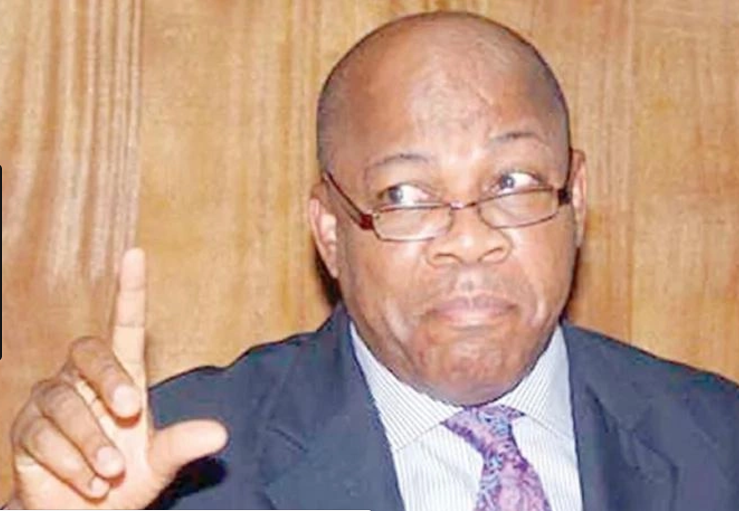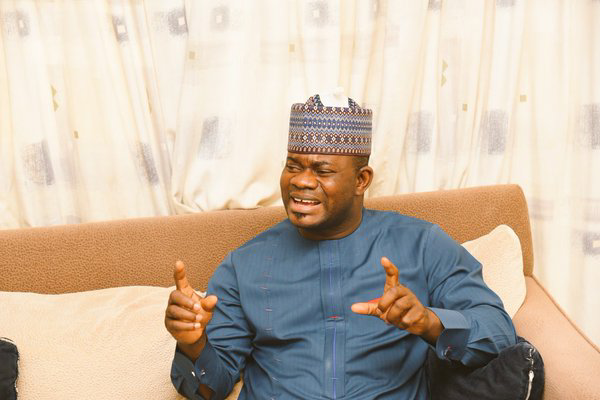By Gbade Ojo
With my recent sporadic media intervention on the warped form and character of federalism in Nigeria, I assumed I must have contributed to the ongoing polemic via-a-vis the imperatives of either political restructuring or secession as canvassed by the Biafrans.
However, when the babel of voices on the kismet of Nigeria’s federal arrangement now takes a very dangerous dimension, I am compelled to lend my voice again. The snag is the idea that confederacy could safe Nigeria; whereas, in the contemporary work no country is organized along confederal structure.
Tola Adeniyi, a respected columnist surprisingly exhumed the spirit of late Bisi Onabanjo (of blessed memory) by canvassing confederation. The idea which was first muted by the former Governor of Ogun State in the Second Republic (1979-1983) was basically borne out of frustration with the system.
A polity that basically threw up the likes of the late Sage – Chief Obafemi Awolowo – but eventually installed Alhaji Sheu Shagari as President; could be described as not working. Same system tolerated annulment of June 12, 1993 Presidential election result despite the fact that the election was a watershed in all ramifications. The late business mogul got ‘sacrificed’ along the line.
That election marked shifting the ‘locale’ of power from the northern military oligarchy to civilians after decades of military junta holding sway. It was also a shift of power from the northern oligarchy to the south and equally an election that removed the toga of ethnicity and religious chauvinism in Nigeria’s body politik; but with impunity discountenanced a credible election, such a system cannot be described as a working federal structure.
In the words of Tola Adeniyi, the bane of Nigeria’s federal arrangement could be summarized thus “it was a marriage that was not canvassed, not negotiated not consented to that was the root, the father and mother of all the diseases that had plagued Nigeria since 1914”.
But this is absolutely reductionist. Between 1960 when Nigerian got flag independence till date, we ought as a country ought to have negotiated how we desire the ‘forced’ marriage to work. Thus, it is imperative that we glaringly highlight the travails of the system for us to be able to recommend recipe. This is the primary motive of this piece.
To start with, the degree of loyalty to the constitution, particularly the sections relating to formal division of powers between and amongst tiers of government is important to federal stability. In as much as federalism is basically a juristic concept, much of its success or failure would depend on the extent to which the central and constituent governments define their powers, territories and other provisions in the constitution.
Its therefore not significantly amazing that since 1954, new constitutions were drafted in quick successions with none satisfying the yearnings and aspirations of an average Nigerian as if the only panacea for federal stability is the constitution, whereas in the words of Alfa Belgore, an eminent jurist, “the elite are making terrible encroachment into the constitution, simply because of personal selfishness”.
Thus, any federal arrangement like Nigeria’s where the constitution is not taken as an upright and sacred document, which must be respected by all no matter how highly placed coupled with rare obedience to court verdicts, federalism definitely runs into troubled waters.
Be that as it may, the concomitant effect of military rule in terms of over-centralization has bastardized the virtues of federalism in Nigeria. What we have is more of a unitary system than federalism! One can easily recall that with 1954 constitution, Nigeria began with a formal federal structure that was decentralized to accommodate the diverse ethnic groups. For instance, each of the constituent federating units, known then as regions, operated its own regional constitution, police, civil service and judiciary.
Each region even had a separate coat of arms and motto, distinct from those of the federation. Sadly, with the coming of the military, along with the command structure of the military, federal government acquired more powers to the detriment of the federating units.
The first military putsch in 1966 abolished regional police. The federal military government went ahead taking over assets owned by the state or group of states like television stations, stadia and newspapers, thereby strengthening the federal government at the expense of the states in terms of asset ownership.
This made the contest for political power at the federal level a lot more intense among the federating units, and it laid the foundation for many years of crisis of instability. Many other actions taken by the military junta no doubt exacerbated this emerging trend.
Nevertheless, the problematic nature of Nigeria’s citizenship is one other travail of Nigeria’s federalism which has in no small measure undermined the efficacy of the federal structure. Unlike India where there is no dual citizenship, in which case there is only one citizenship, and where the concept of a state citizen does not exist, on the other hand in Nigeria to be employed outside one’s ethnic base at state level is really a big ‘risk’ in the sense that such a person would bear the burden of a non-indigene.
Indeed, there is a conscious notion of my state ‘or’ my home which affects every Nigerian who lives outside his/her state of origin and makes him/her go home to marry a wife, build a house or to vote. Even the dead are rarely buried outside their states of origin. The implication of this is that citizens’ allegiance to the federation is truncated because of the state’s preferential treatment of its citizens.
A system whereby the country cannot effectively tackle the problem of citizenship negates the tenets of federalism. Harold Laski’s view is apt here “a state must give to men their dues as men before it can demand at least with justice, their loyalty”.
Another absurdity of federalism in this clime is structural imbalance. According to J.S. Mill’s law of federal stability “a federation is morbid if one part is bigger than the sum of the other parts”. It is not surprising therefore that Nigeria’s convoluting federal structure is indeed morbid. For analytical simplicity, in terms of land mass, the Northern region then had 71.0%, Eastern Region 8.3%, Western Region 8.5% and the Mid-Western region 4.6%.
Thus, for the three Southern regions, the federal structure as constituted before state creations made it virtually impossible for the South to control political power at the centre, given the ethno-regional politics of the country without power ‘concession’ from the North! The South feared Northern political domination by population and land mass, while the North was equally afraid of the Southern edge in modern skills and western education.
In such situation of asymmetric ethnic relationships, the federal arrangement can hardly be stable except with imbued virtues of justice, equity and fairness. If anything, the greatest travail of Nigerian federalism is the problem of asymmetric power relationship between and among disparate component units of the federation. The federation is rife with mutual accusations and counter accusations of domination and marginalization.
In a perceptive piece decades ago, John A. Ayoade, an emeritus professor of Political Science and an eminent student of federalism noted that another absurdity of federalism in Nigeria is religious bias which has proved to be another form of poor power distribution in Nigeria.
Despite informal mode of power sharing where if the chief executive is a moslem, the vice or deputy is a Christian, but in the Second Republic (1979-1983) “country-wide moslems obtained about 70% of all executive and board positions”. This trend of insensitivity to federal character principle cum religious bigotry has robbed the federation of the needed sense of justice and equity for federal stability.
Perhaps the most potent and relevant to the Nigerian situation now is the inability of the polity to manage natural resources in a way that could enhance equity and development. Natural resources that ought to be a blessing, with warped fiscal structure, it has become a curse.
The real problem in this wise is that of internal colonialism vis-à-vis resource management which permits the general expropriation of economic resources by the dominant group, their control of access to education and technological resources, cum their denigration of the culture of the subordinating section.
When this is done as it is in Africa, federalism runs into problem and stress. It is not surprising therefore that only Nigeria retains the semblance of federalism in Africa even as bastardised as it is.
Conclusively, a consideration of the aforementioned travails of federalism in Nigeria no doubt should assist policy makers in thinking outside the box so that the fragile federal arrangement does not completely disintegrate. To rescue the system from drifting toward collapse, a quick review of the previous confab reports may be more appropriate.
Dr. ‘Gbade Ojo is an Associate Professor of Comparative Politics, UNILORIN and currently serving as Chief of Staff to the Executive Governor of Oyo State.

